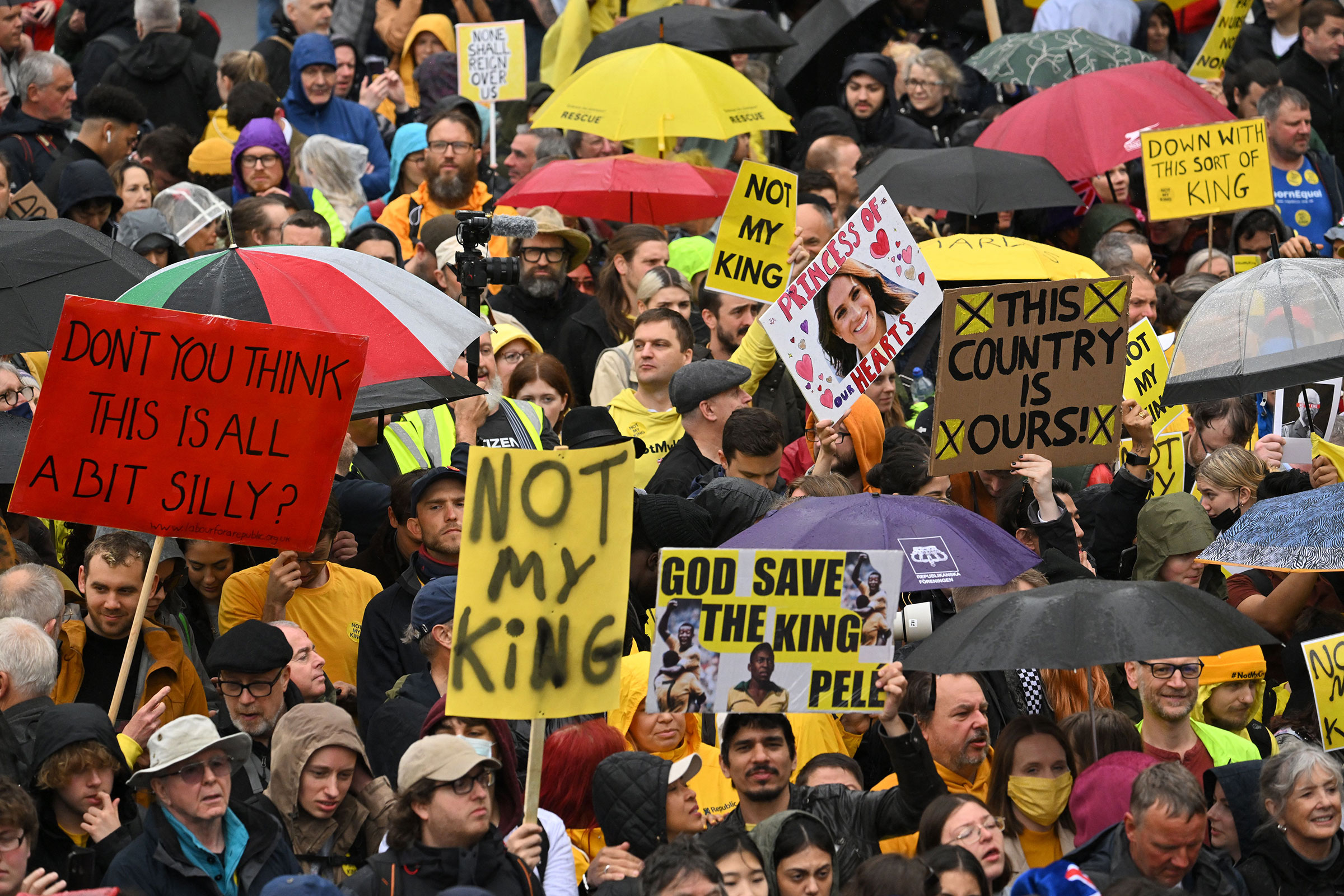
Graham Smith, the head of the U.K.’s leading anti-monarchy movement, was planning to lead thousands of fellow republicans in protest of King Charles III’s coronation. In the end, he didn’t get the chance. Smith and five others were arrested on Saturday morning in Central London, according to the group.
The reason for the arrest remains unclear. At approximately 7:30 a.m. local time, Smith and his fellow protesters were collecting drinks and placards for attendees when, according to The Guardian, they were stopped by the police. A spokesperson for Republic told the newspaper that the police would not provide a reason for the arrest. In photos of the arrest posted to Twitter by the campaign group, Smith can be seen sitting on the ground surrounded by police officers. In a video, one officer can be heard saying: “They’re under arrest—end of.”
The Metropolitan Police, which has deployed 11,500 officers for the coronation, subsequently tweeted that they had made “a number of arrests” in the area, adding that “the individuals have been held on suspicion of breaching the peace.”

Read More: King Charles III’s Coronation Is Underway. Here Are the Latest Updates
Smith, who widely publicized the demonstration plans, told TIME in the run up to the coronation that he expected as many as 1,700 people to join Republic on Trafalgar Square, a historically popular site for protest in Britain. In addition to chants of “not my king,” Smith said the protest would also feature speeches from lawmakers, activists, and even representatives of other republican movements. Their principle argument, Smith says, is that monarchy is inherently anti-democratic and that Britain should have an elected head of state instead.
By arresting the protesters and preventing them from peacefully protesting, the British authorities may have inadvertently bolstered the anti-monarchists’ stance. Just days before the coronation, the British government passed into law the Public Order Bill, which gives the police greater powers to crack down on those engaging in popular protest tactics. Strategies like “locking on,” in which a protester attaches themselves to an object, infrastructure, or other people to make them difficult to remove, are now punishable by up to six months in prison. According to the Metropolitan Police, four people were arrested today with lock-on devices on “on suspicion of conspiracy to cause public nuisance.”
Jodie Beck, a policy and campaigns officer at the civil-liberties organization Liberty, tells TIME that the anti-protest legislation appeared to be rushed through last week—having only received royal assent from King Charles on Tuesday—in preparation for use at the coronation. “Protest is not a gift from the state—it is our fundamental right,” says Beck. “It’s deeply concerning to see protesters being arrested today and just shows that, as many of us predicted, the policing of the coronation is turning out to be a human-rights nightmare.”
While some British lawmakers condemned the arrest as “shocking,” others appeared to support the police’s actions. “If you do not wish to live in a country that has a monarchy the solution is not to turn up with your silly boards,” tweeted Lee Anderson, a Conservative lawmaker and deputy chairman of the ruling party. “The solution is to emigrate.”
More Must-Reads from TIME
- Cybersecurity Experts Are Sounding the Alarm on DOGE
- Meet the 2025 Women of the Year
- The Harsh Truth About Disability Inclusion
- Why Do More Young Adults Have Cancer?
- Colman Domingo Leads With Radical Love
- How to Get Better at Doing Things Alone
- Michelle Zauner Stares Down the Darkness
Write to Yasmeen Serhan / London at yasmeen.serhan@time.com